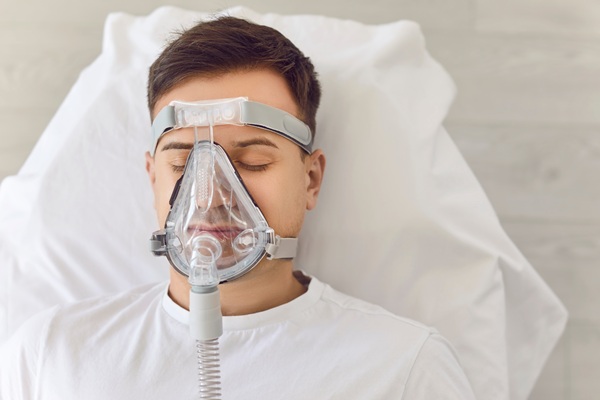Do Oral Appliances Work for Sleep Apnea?

Oral appliances are usually recommended as an alternative to CPAP for sleep apnea treatment. These devices are custom made for patients by the general dentist using the mouth’s impressions. Oral appliances are not only effective for sleep apnea, but they are also sometimes good for stopping snoring.
How oral appliances for sleep apnea work
Most oral devices work by shifting the jaw forward. These are called mandibular advancement devices or jaw advancing devices and increase the size of the air passages, consequently reducing air resistance or inhibitions that cause sleep apnea and snoring. Some of these devices allow the patient to modify the extent to which the jaw is moved for comfort and functionality.
Another type of sleep apnea oral appliance is the tongue-retaining device. This consists of a splint that holds the tongue in position to ensure that the air passage stays open throughout sleep. Although anti-snoring devices work similarly, patients suffering from sleep apnea need to use a device designed specifically for their condition.
How effective are oral appliances for sleep apnea?
Although CPAP is the most popular treatment option, oral appliances are quickly becoming more common, as research proves their efficiency in treating mild to moderate cases of sleep apnea and snoring. Oral devices are typically used as a replacement for sleep apnea surgery and CPAP machines because they are more cost-effective and less invasive. The device can even be recommended in conjunction with a weight loss program for overweight patients.
While not all patients can get sleep apnea mouthpieces, as they are typically more effective for mild to moderate cases, they might also be usable for patients with severe sleep apnea who have trouble tolerating CPAP machines. It is crucial for patients to work with their dentist to know if the treatment would be suitable for them.
After the patient gets the oral device, the dental professional may request a sleep study to determine the treatment’s efficiency. Follow-up care is important to ensure that the patient is getting the appropriate treatment.
Benefits of oral appliances
By using the oral devices consistently and according to the dentist’s guidance, patients can enjoy the benefits of the treatment for sleep apnea. Most people start to notice improvements in their sleep apnea after the first night of use. Since the use of sleep apnea devices is easy and comfortable, there is a better compliance rate with the device than CPAP machines. Other benefits of oral appliances include:
- Convenience: The devices are compact and easy to carry
- Discreet: The mouthpiece stays in the mouth and is invisible to others
- Less hassle: Unlike CPAP devices, oral appliances do not need electricity and therefore, do not need to be plugged into a wall to work, making them more comfortable and cheaper to use
Get an oral appliance from the dentist
The first step to take for any sleep apnea treatment is speaking with the general dentist. Be sure to discuss your symptoms when you visit the dental office. You might need to undergo a sleep study, and if you get a diagnosis for sleep apnea, the dental professional will discuss treatment options, including oral appliances.
Request an appointment here: https://velazquezdentistry.com or call Velazquez Dental Office at (909) 527-6270 for an appointment in our Rancho Cucamonga office.
Check out what others are saying about our dental services on Yelp: Sleep Apnea in Rancho Cucamonga, CA.
Related Posts
A dental bridge replaces one or more missing teeth by anchoring a lifelike “pontic” to neighboring teeth or implants. This fixed option restores chewing, speech clarity, and a natural-looking smile line. By filling the space, a dental bridge helps prevent drifting teeth, changes in bite, and excessive wear on remaining enamel. The material, whether porcelain…
Complications after a tooth extraction are uncommon, but understanding the warning signs helps protect long-term oral health. During healing, problems such as infection, dry socket, or prolonged bleeding can occasionally develop. Knowing what to watch for and when to call a dentist supports a smoother recovery. Below are a few things to watch for after…
A broken or lost restoration can cause unexpected pain, stress, and difficulty eating or speaking, which is why many people contact an emergency dentist for quick relief. Whether a crown has fallen out or a filling has fractured, prompt attention helps prevent further damage, infection, or discomfort. Seeking help right away protects the surrounding teeth…
Choosing a general dentist is an important and personal decision. This dental professional plays a significant role in helping you maintain your oral and overall health. Finding the right dentist for you can make all the difference in keeping your teeth and gums healthy. With so many options available, it can be overwhelming to make…
